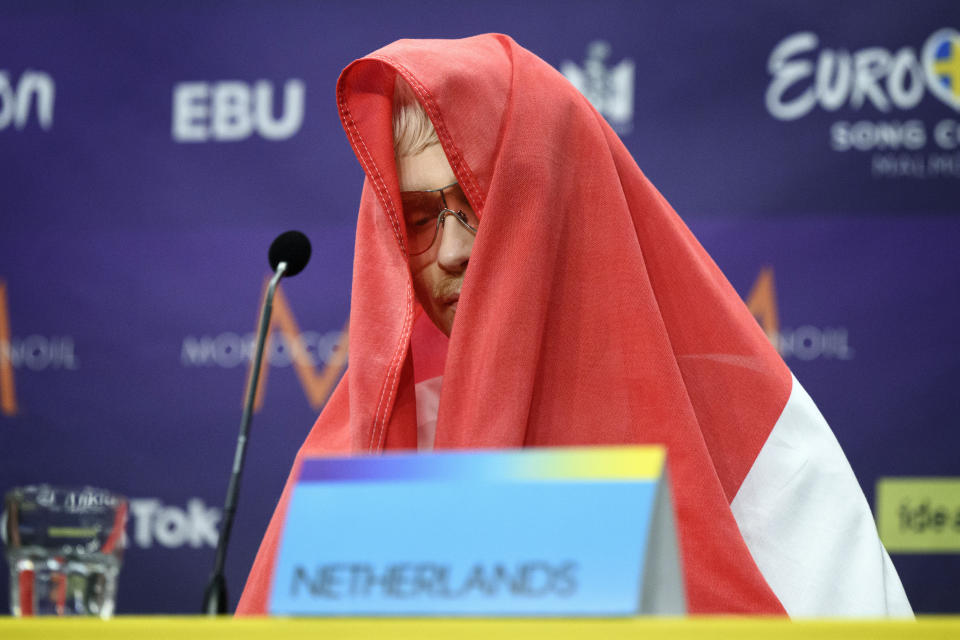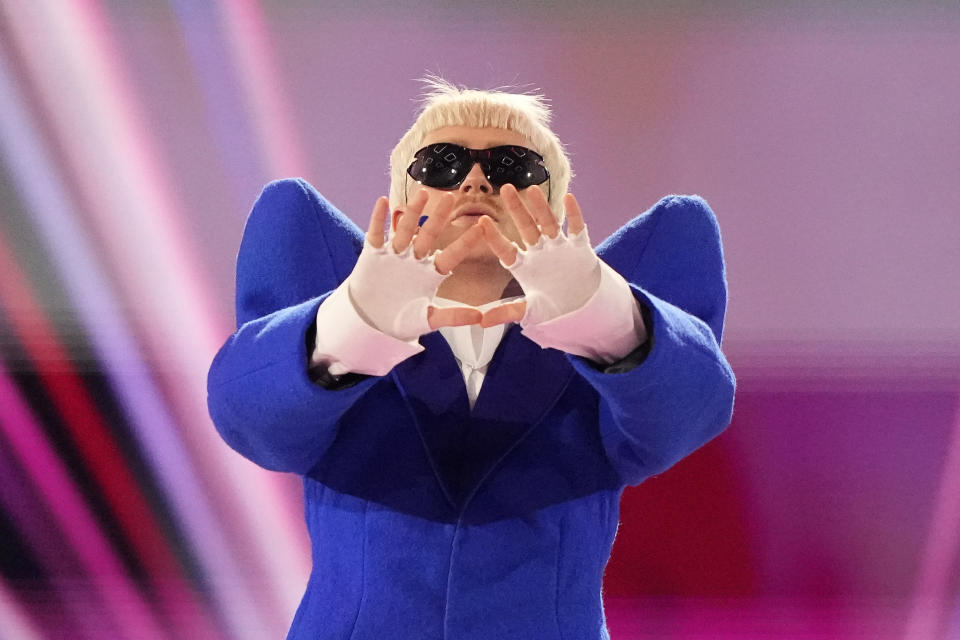Dutch artist expelled from Eurovision Song Contest is likely to face charges, Swedish police say
- Oops!Something went wrong.Please try again later.
COPENHAGEN, Denmark (AP) — The Netherlands’ contestant in the Eurovision Song Contest who was dramatically expelled from the competition hours before the grand finale will likely be charged for making illegal threats, Swedish police said Monday.
Joost Klein had failed to perform at two dress rehearsals on Friday and the organizer, the European Broadcasting Union said that police were investigating a complaint by "a female member of the production crew” at the competition in the Swedish city of Malmo.
Police spokesman Jimmy Modin told The Associated Press their investigation into the incident was over and that a decision on the charges should come “within a few weeks.” He did not elaborate on the nature of the threats that the Dutch performer is accused of making.
The contest in Malmo followed a turbulent year for the pan-continental pop contest that saw large street protests against the participation of Israel that tipped the feelgood musical celebration into a chaotic pressure cooker overshadowed by the war in Gaza.
Details of what happened backstage are unknown.
The tabloid Aftonbladet said, citing an unnamed source, that Klein at one point became stressed by all the photographers and asked them to stop filming. When one photographer got close, he raised his arm with a fist and lunged at the photographer, the paper said.
The Sydsvenska daily, a Malmo newspaper, said that the crime of making threats usually leads to fines upon conviction.
“We expect there will probably be a prosecution,” Emil Andersson, the police officer in charge of the case, told Swedish broadcaster SVT. He also said that a legal process of "accelerated prosecution” will likely be involved as the altercation did not involve a more serious crime.
The average time for an investigation in cases of accelerated prosecution is six to eight weeks.
The last-minute disqualification was unprecedented in the 68-year history of Eurovision. The 26-year-old Dutch singer and rapper had been a bookies’ favorite, as well as a fan favorite, with his song “Europapa,” an upbeat Euro-techno ode to the continents diversity that is also a tribute to Klein’s parents, who died when he was a child.
Klein reportedly has already left Sweden.
The 68th edition of the contest was won by Switzerland's Nemo.


